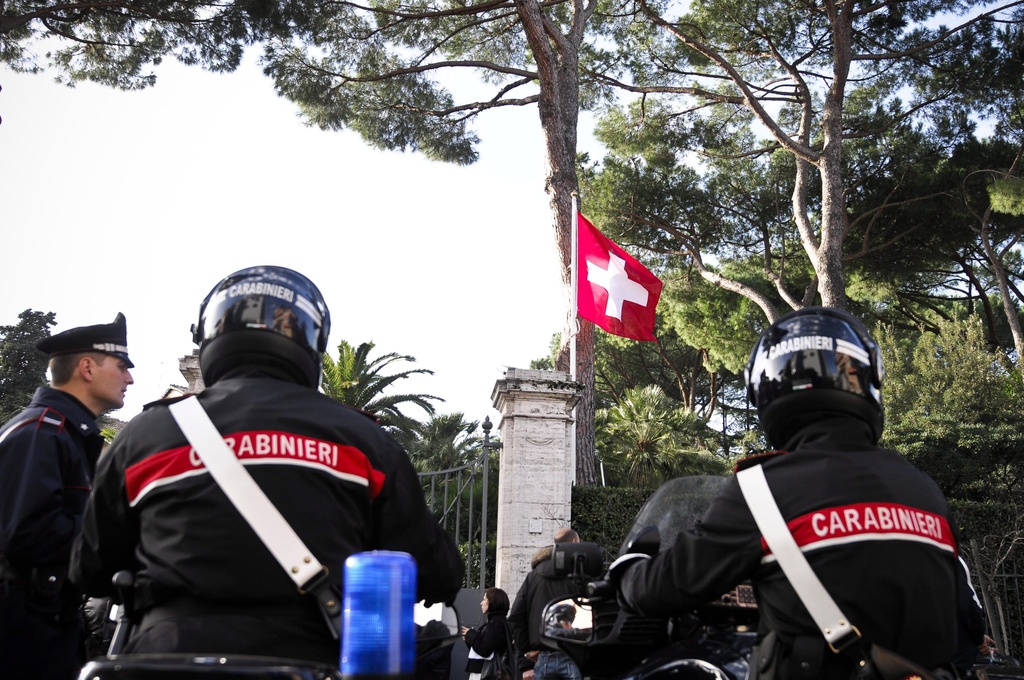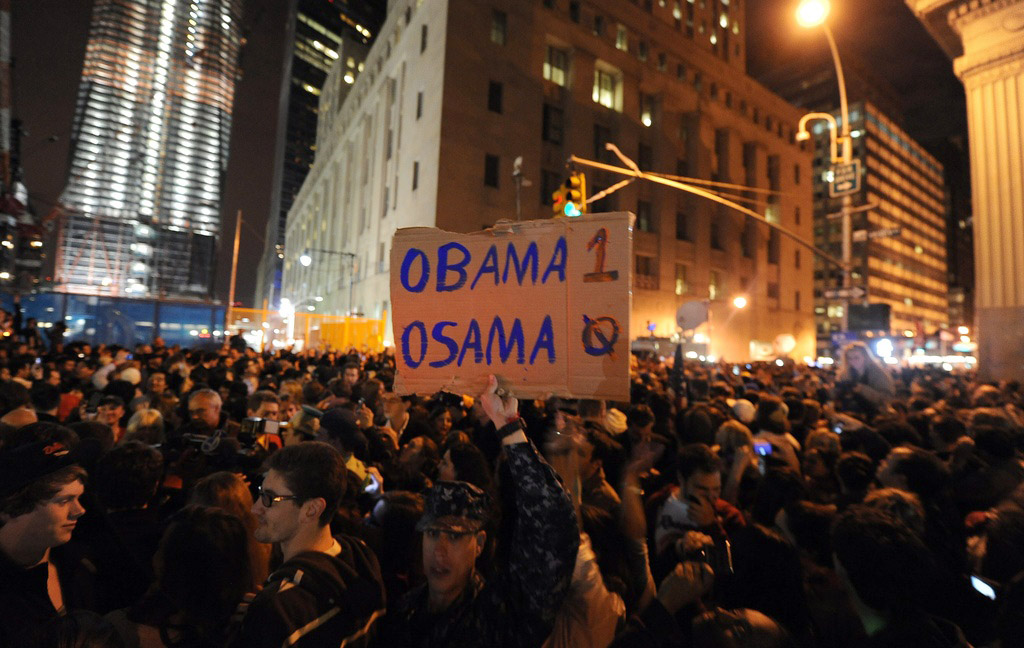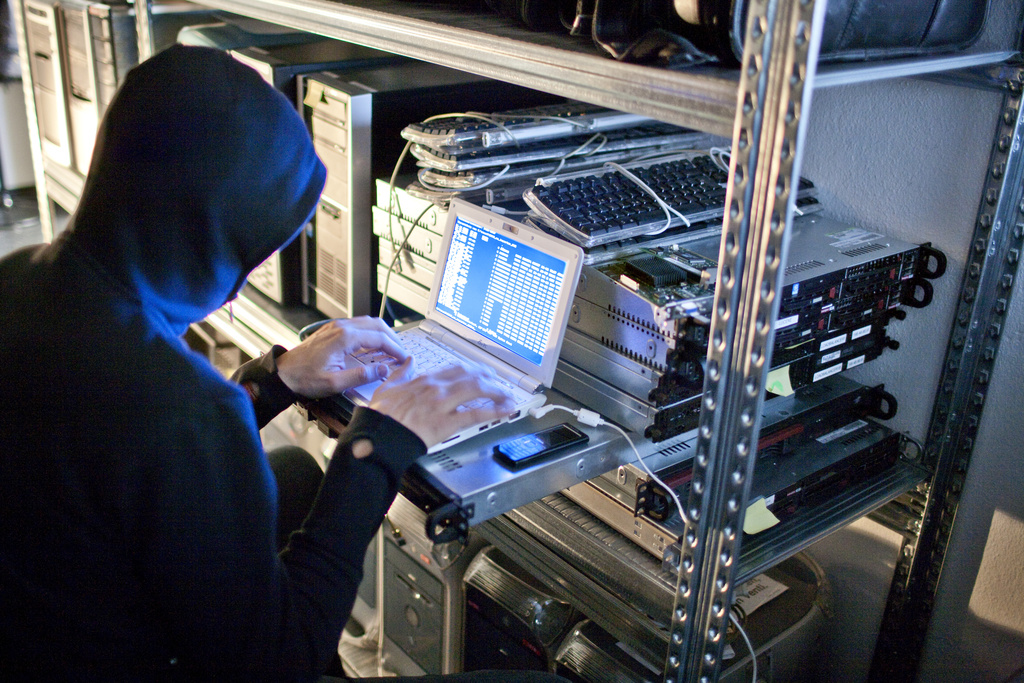Swiss security weakened by global shifts

Extremists and economic espionage were among the greatest threats to Switzerland’s security in the last year, but global shifts are set to impact more in the future.
The Federal Intelligence Service outlined the major issues of 2010 at a briefing on Monday. Terrorism wasn’t among the concerns, but the Service’s freshly printed report on recent activities was nevertheless overtaken by events.
The killing of al-Qaeda leader Osama bin Laden by United States forces on Sunday has forced a rethink on future terrorist threats.
Probed on the significance of bin Laden’s death, Defence Minister Ueli Maurer told journalists that there was a risk it would incite reprisals against American targets. He said it would not impact on Swiss security in the immediate future, but the danger of a terrorist attack on Switzerland would increase over time and would require a closer look at the issue.
Markus Seiler, head of the Intelligence Service, elaborated to swissinfo.ch that while bin Laden had been the figurehead of al-Qaeda, in reality this represented “a small hardcore group that was no longer capable of influencing terrorist actions of regional al-Qaeda organisations, for example in North Africa or in the Arabian peninsula”.
Intelligence chiefs will now be looking at how al-Qaeda reacts to the death and who becomes bin Laden’s successor.
Extremists on home soil
Among the more direct threats to Switzerland in 2010 were attacks by left and rightwing extremists at home.
“Violent extremism in Switzerland leads to local security problems and threatens public order,” stated the report.
Switzerland has around 2,000 extremists, of which half are thought to be violent.
There were 245 leftwing and anarchic extremist incidents in 2010 (compared with 220 in 2009), of which 109 involved violence. The rise was mostly tied to the rightwing Swiss People’s Party-led referendum on expelling foreign criminals, as well as action by those wanting political prisoners freed from Swiss prisons.
In one case, Switzerland’s arrest of three extremists who allegedly planned an attack on the IBM research lab in Rüschlikon in canton Zurich resulted in suspect packages being sent to various embassies including the Swiss mission in Rome where a staff member was injured.
The same group of anarchists has also claimed responsibility for a letter bomb sent last month to someone in the office of the Swiss nuclear power lobby organisation.
Rightwing incidents meanwhile fell from 85 to 55 incidents in 2010, with 13 involving violence.
Dangers on the horizon
Looking ahead, cyber terrorism could become a “potential danger”. Globally, attacks on computer systems running essential services are expected to multiply and this could also affect Switzerland, the reports says. A group of experts has been created by the government to come up with a counter strategy.
Regional conflicts, such as those in North Africa could also impact on arms proliferation and terrorism.
“It’s clear that the situation could have various effects on Europe and Switzerland, such as migratory pressure and crime. At the same time we need to keep an eye on the terrorist situation because in these countries there is a weakening in the security system and that can have an effect on terrorist organisations,” Seiler told swissinfo.ch.
“Terrorists can move more freely and enter Europe. But for the moment, the threat had not fundamentally changed by the end of 2010.”
International burdens
The intelligence report adds that Switzerland’s dependence on raw materials and energy makes it vulnerable to pressure from other states that may be keen to protect their own interests. This has been manifested most recently in the case of rising energy costs of products from the Arab world, although it has not impacted on deliveries.
Switzerland’s biggest nuclear threat is Iran, which is the only country capable of producing long range missiles that could reach its borders in the coming years.
Economic espionage is also “undermining state sovereignty” and can “weaken the competitiveness of businesses established in Switzerland and threaten the financial sector and industry”, according to the report. “This threat remains consistently high.”
For this, protective and preventative measures are important, such as the government’s Prophylax training programme which aims to help private corporate and research institutions protect themselves better.
Harder to protect against is the effect of the economic crisis. The reports says the current global meltdown can also threaten social cohesion, with Swiss budget deficits and financial crises in neighbouring countries expected to continue to put a strain on international financial systems.
The Federal Intelligence Service is in charge of civilian intelligence operations and assesses threats against Switzerland situation.
The annual security report reviews the domestic security situation and also considers global situations that are continually monitored in light of potential threats to Switzerland, such as economic downturns.
The 2010 report does not take into account new threats arising from developments in North Africa since the start of 2011.
In presenting the report for 2010, Defence Minister Ueli Mauer said progress has been made in the destruction of personal data gathered illegally by the Intelligence Service.
The issue was criticised by a parliamentary commission in 2010. The report by a parliamentary watchdog showed that the secret services collected information about 200,000 suspects, mainly foreigners, considered a threat to the state.
The report said the internal secret service failed to observe correct legal procedures and neglected regular quality controls in breach of the law.
Data for 44,000 people still has to be dealt with. All data should be assessed by the end of 2012.
President and Foreign Minister Micheline Calmy-Rey welcomed the news of bin Laden’s death.
“The fact that al-Qaeda has been decapitated is good news,” she said.
She said Switzerland condemned all kinds of terrorism and was in favour of actions aimed at putting an end to international terrorism.
“My thoughts are with all the victims [of international terrorism] and their families,” she said.
Defence Minister Ueli Maurer said Switzerland was not a prime target of Islamic terrorists, but he would not exclude attacks.

In compliance with the JTI standards
More: SWI swissinfo.ch certified by the Journalism Trust Initiative




You can find an overview of ongoing debates with our journalists here. Please join us!
If you want to start a conversation about a topic raised in this article or want to report factual errors, email us at english@swissinfo.ch.